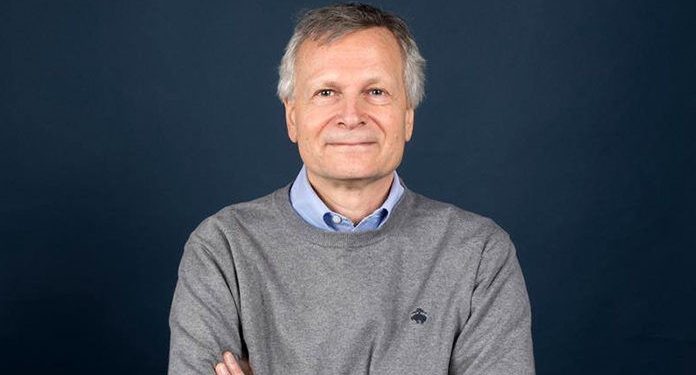Dani Rodrik
Early in his career, the economist Joseph E. Stiglitz had an extended stay in Kenya, where he was struck by various oddities in how the local economy operated. Sharecropping was one such anomaly. If farmers were required to surrender half of their harvest to landlords, Stiglitz wondered, wouldn’t that greatly tax incentives and thus reduce efficiency? Why did such a system persist?
Stiglitz’s quest to resolve this paradox led him to develop his seminal theories on asymmetric information, for which he would later be awarded the Nobel Memorial Prize in Economic Sciences. “The time I spent in Kenya,” he reminisced, “was pivotal in the development of my ideas on the economics of information.”
Similarly, the economist Albert O. Hirschman was in Nigeria when he observed behaviour that he found puzzling. The rail company, long a public monopoly, had begun to face competition from private truckers. But instead of responding to this pressure by addressing its many glaring inefficiencies, the company simply deteriorated even more. The loss of consumers, Hirschman reasoned, had denied the state firm valuable feedback. This observation about rail transport in Nigeria was the seed that grew into his phenomenally influential book Exit, Voice, and Loyalty. (Hirschman also fully deserved a Nobel Prize, but never got one.)
These stories attest to the value of being able to see the world in all its variety. The social sciences are enriched when received wisdom is confronted with ‘anomalous’ behaviour or outcomes in unfamiliar environments, and when the diversity of local circumstances is fully considered. This observation should be uncontroversial. Yet one would not know it from the way that the economics discipline is organised. The leading economics journals are populated predominantly by authors based in a handful of rich countries. The gatekeepers of the profession are similarly drawn from academic and research institutions in those same countries. The absence of voices based in the rest of the world is not merely an inequity; it impoverishes the discipline. When I recently took over as president of the International Economic Association, I looked for data on the geographical diversity of contributors to economics publications, but I found comprehensive and systematic evidence to be surprisingly scarce. Fortunately, data collected recently by Magda Fontana and Paolo Racca of the University of Turin and Fabio Montobbio of Università Cattolica del Sacro Cuore in Milan provide some striking initial findings.
As I suspected, their data show an extreme geographic concentration of authorship in leading economic journals. Nearly 90 per cent of authors in the top eight journals are based in the United States and Western Europe. Moreover, the situation seems similar with these publications’ editorial board membership. Given that these rich countries account for only around one-third of global GDP, the extreme concentration cannot be explained wholly by inadequate resources or less investment in education and training in the rest of the world – though those factors surely must play some role.
Indeed, some countries that have made huge economic strides in recent years nonetheless continue to be severely under-represented in top journals. East Asia produces nearly one-third of global economic output, yet economists based in the region contribute less than five per cent of the articles in major journals. Similarly, the shares of publications from South Asia and Sub-Saharan Africa are minute, and significantly lower than these regions’ already small weight in the world economy.
Beyond resources and training, access to networks is key in the generation and diffusion of knowledge. Whether a piece of research is taken seriously depends critically on whether the authors have gone to the right schools, know the right people, and travel on the right conference circuit. In economics, the relevant networks are based predominantly in North America and Western Europe.
The predictable objection here is that many of today’s leading economists are from developing countries themselves. True, in some ways, economics has become more international. The number of foreign-born researchers in leading North American and Western European economics departments and research networks has grown. As a student from Turkey who first arrived in the US at the age of 18, I certainly benefited from these networks.
Researchers in advanced economies also have been paying more attention to developing countries, reflecting the fact that development economics has become a much more prominent field within the discipline. In the development-economics master’s programme that I run at Harvard University, for example, only a minority of faculty members are from the US. The rest are from Peru, Venezuela, Pakistan, India, Turkey, South Africa, and Cameroon.
But none of these positive developments can fully substitute for local knowledge and insight. Foreign-born economists in the West are typically absorbed into an intellectual environment dominated by rich-country issues and concerns. The visiting economist’s exposure to diverse local realities remains limited to happenstance and coincidence, as in the stories about Stiglitz and Hirschman. Just think of all the important ideas that remain undiscovered because researchers from the academic periphery lack a receptive audience.
Economics is currently going through a period of soul searching with respect to its gender and racial imbalances. Many new initiatives are underway in North America and Western Europe to address these problems. But geographic diversity remains largely absent from the discussion. Economics will not be a truly global discipline until we have addressed this deficit as well.
The writer, Professor of International Political Economy at Harvard University’s John F. Kennedy School of Government, is President of the International Economic Association. ©Project Syndicate.






































